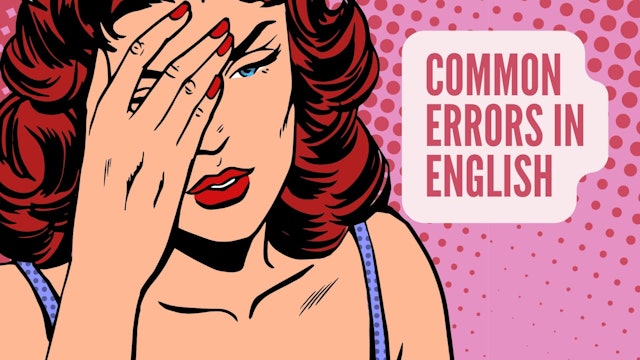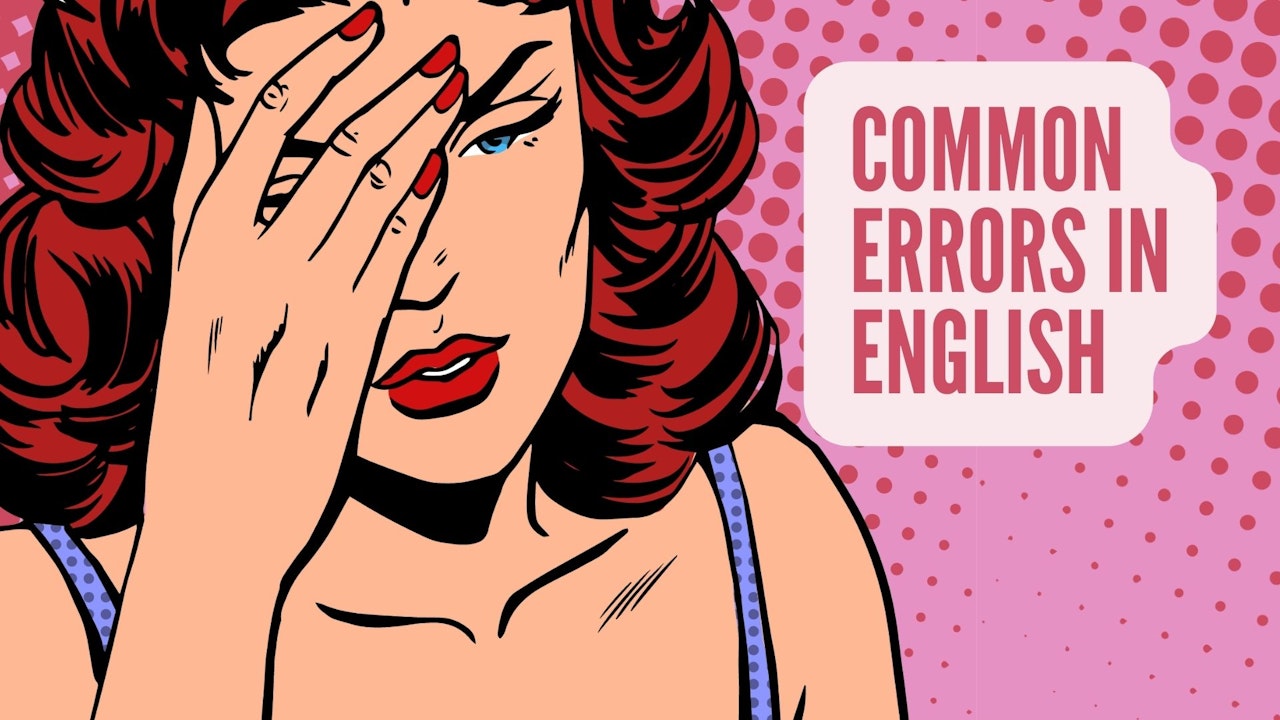Common errors in English
Learn about some of the most common errors English learners make and how you can avoid them.
This series of video lessons will give you lots of examples in context of some of the most common errors that learners make in English. I will explain why it's wrong and show you what we really say.
-
REMEMBER TO DO or REMEMBER DOING?
We’re going to learn how to use the verb REMEMBER and how the meaning can change depending on the form of the next verb we use after it.
So what’s the difference between REMEMBER TO DO and REMEMBER DOING? Let’s try an example sentence to see how we use them:
You could say: REMEMBER TO DO your h...
-
TRY TO DO or TRY DOING?
We’re going to learn how to use the verb TRY and how the meaning changes depending on the form of the next verb we use after it.
So what’s the difference between TRY TO DO and TRY DOING? Let’s look at an example sentence to see how we use them. You could say: TRY TO SPEAK English or TRY SPEAKING...
-
I like IT WHEN…
We’re going to learn how to use the verbs that talk about likes and dislikes followed by ‘when’ to describe how we feel about a certain time or situation. This is a simple sentence to use but a very common error. Let’s look at an example sentence.
You could say: “I LIKE IT WHEN you cook me dinne...
-
I FIND IT easy to…
We’re going to talk about our experiences using the verb ‘FIND’. You probably know how to use the verb FIND when you’re looking for something lost, but this is a different way of using this verb.
This is a very common and useful phrase to learn. In this phrase, we use the verb ‘FIND’ followed b...
-
I SUGGEST THAT you...
We’re going to look at a very common verb that is often confusing for students to use in a sentence. We’ll look at some examples to learn how to use it and we’ll also see how not to use it. The verb in today’s lesson is SUGGEST and how we use it when we want to SUGGEST an action.
The reason why ...
-
I’m THINKING OF doING it
We’re going to talk about your plans using the verb THINK. How do you describe the things you might do in the future?
Well, a very simple way to talk about your future is to say: I’M THINKING OF, I’M THINKING OF. So, use the verb THINK in the continuous form, which is BE plus the verb with ING f...
-
I WISH I WAS or I WISH I WERE?
We’re going to focus on the verb WISH to talk about things we would like to be different but we cannot change. Why can we not change them? Well, either we don’t have the power to change them or they happened in the past, so it’s too late to change them!
Let’s start with a simple example: I WISH ...
-
I WISH I KNEW and I WISH I HAD KNOWN
In the last lesson we talked about using the verb WISH to talk about unreal situations in the present. Things that we would like to change now, but we can’t. In this lesson, we’re going to look at the difference between a wish in the present and a wish in the past. What’s the difference? How does...










